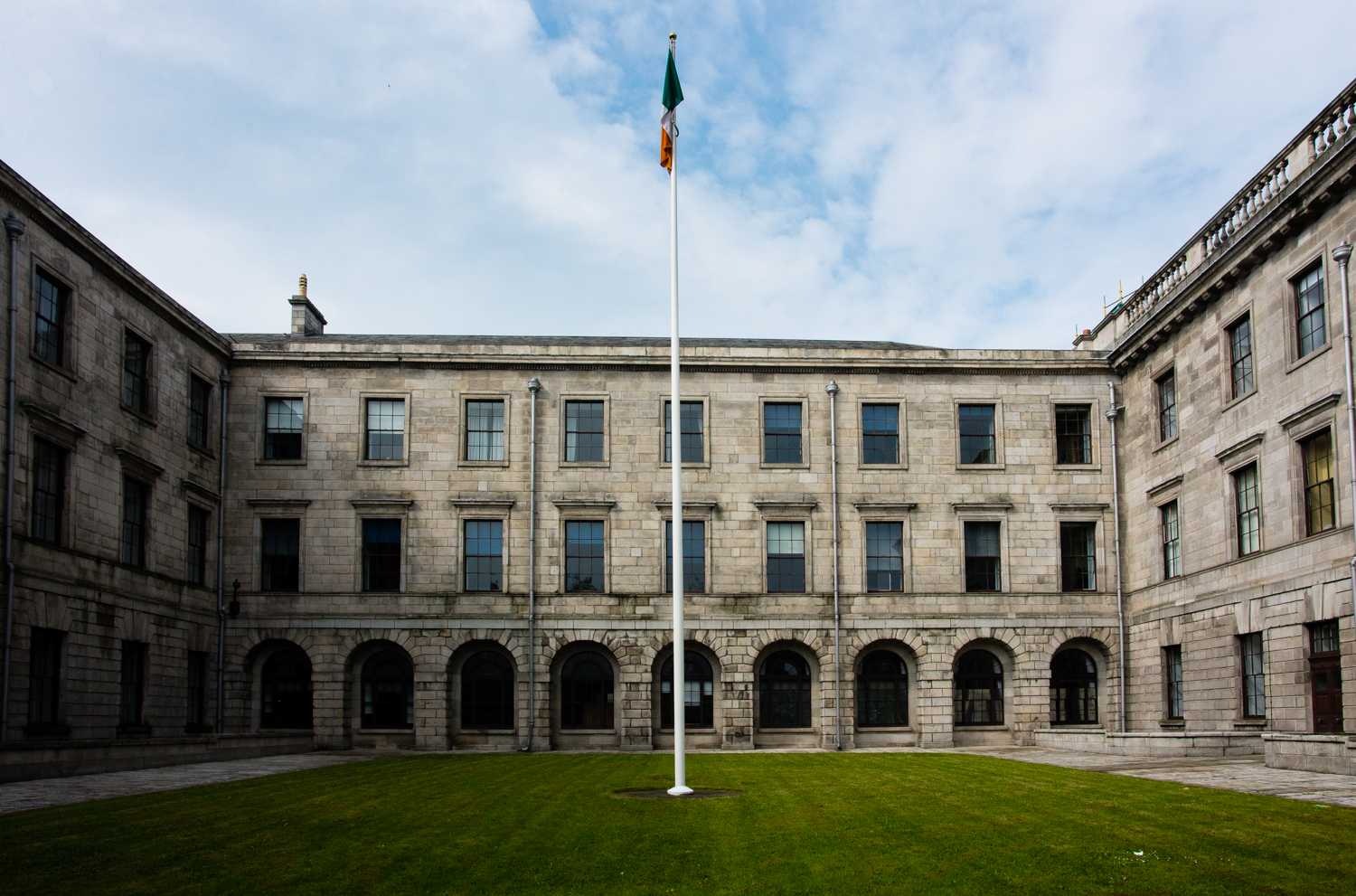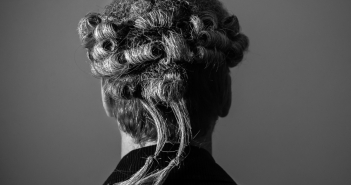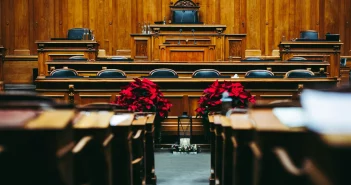The task of ascertaining essential qualities required to be a judge is necessary for the preservation of a functioning democracy. Any state demands gatekeepers of independence and probity, and leadership of the just and the wise. Importantly, the qualities that make for a good judge do not necessarily align with the skills of a successful advocate.
First and foremost, judicial appointments must be transparent and non-political. Peer selection may bring effective appointments, but often cronyism and tribal affiliation leads to the selection of judges lacking independence, and even ensnared by vested interests. Crucially, a judge is not a servant of the state but the Rule of Law.
The judge who bends over backwards to manipulate doctrine to serve the interests of his paymasters in government is no longer a true judge. The judge who does not approach each case with an open mind also dishonours his role. The judge who protects the state, no matter what its malfeasance, is unjudicial and even subversive.
A first recommendation is that judges should neither be appointed by politicians, nor elected as in the U.S.. Alas even supposedly independent appointment boards are often stacked with the ‘yes’ men of the state, which is another stumbling block to the appointment of truly independent judges. To preserve and promote independence those who select judges must also themselves be independent.
Secondly, the qualities of the advocate and judge are quite distinct. In Ireland at least, there is far too much veneration of successful barristers, which leads to the assumption that their abilities are those required of a judge. Sir Edward Carson was among the greatest barristers of all time, but a hopeless judge in the House of Lords, where his judgments are often incomprehensible. Partisan, fearless advocacy, so necessary to the stock in-trade of the barrister, is often an impediment to being a judge, who must eschew this approach in favour of dispassionate reflection.
A judge should sit back and listen, and only selectively intervene, not rush in as if it were a college debate. A person of an adversarial bent is not inclined to be even-handed: he takes sides; rushes to judgment; intervenes and confronts.
Judges are of course subject to emotions, foibles and prejudices. But to call someone prejudiced is not necessarily pejorative, it merely recognises our flawed humanity. Ecce Homo. What is important is to recognise our prejudices as such, and adjust our responses accordingly.
II
The great jurist Jerome Frank argues in Law and The Modern Mind (1930) that in order to predict a judge’s decision we would need a full biography of his life; the politics, morality, race, sex, religion and other factors that shape his character, and which will predict the outcome of any case.
Frank tuned into how the prejudice of participants in the trial process (judges and indeed jurors or witnesses) influenced decisions, and how selective recall or mistakes in evidence often affected the outcome of cases. Thus, the unpredictability of court decisions resides primarily in the elusiveness of establishing the truth and deep-seated prejudice. He expresses this in two deeply evocative passages:
But are not those categories–political, economic and moral biases–too gross, too crude, too wide? A man’s political or economic prejudices are frequently cut across by his affection for or animosity to some particular individual or group, due to some unique experience he has had; ….the judge’s sympathies and antipathies are likely to be active with respect to the persons of the witness, the attorneys, and the parties to the suit. His own past may have created plus or minus reactions to women, or blonde men, or plumbers, or ministers, or college graduates, or Democrats. A certain twang or cough or gesture may start up memories pleasant or painful to the man. Those memories of the judge, while he is listening to a witness with such a twang or cough or gesture, may affect the judge’s initial hearing of, or subsequent recollection of, what the witness said…
Or:
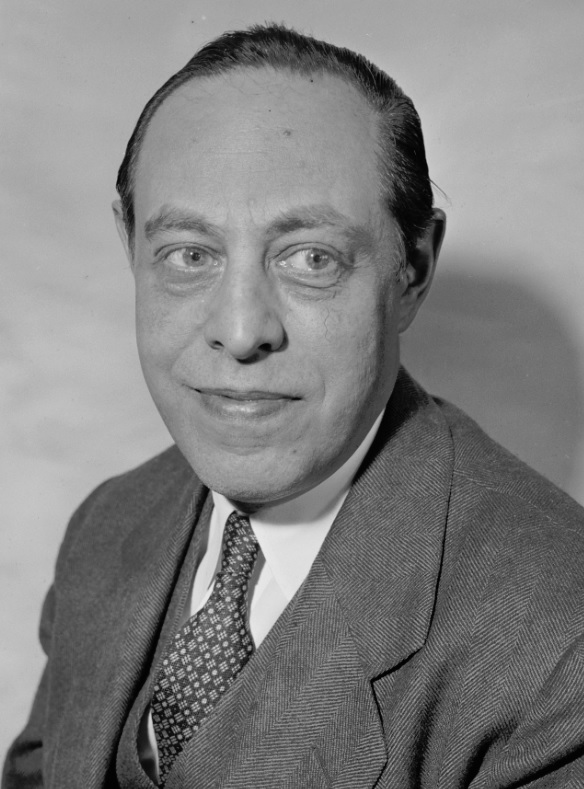
Jerome Frank 1889-1957.
When pivotal testimony at the trial is oral and conflicting, as it is in most lawsuits, the trial court’s finding of the fact involve a multitude of elusive factors: First the trial judge in a non-jury trial or the jury in a jury trial must learn about the facts from the witnesses and witnesses, being humanely fallible, frequently make mistakes in observation of what they saw and heard, or in their recollections of what they observed, or in their court room reports of those recollections. Second, the trial judges or juries also human, may have prejudices – often unconscious unknown even to themselves – for or against some of the witnesses, or the parties to the suit, or the lawyers … Those prejudices when they are racial, religious, political or economic, may sometimes be surmised by others. But there are some hidden, unconscious biases of trial judges or jurors – such as for example, plus or minus reactions to women, or unmarried woman, or red haired woman . . . or men with deep voices or high pitched voices . . .
He concludes: ‘The chief obstacle to prophesying a trial court decision is, then, the inability, thanks to these inscrutable factors, to foresee what a particular trial judge or jury will believe to be the facts.’
In substance Frank is making two points about the unpredictability of outcomes in trial courts. First, that a judge’s background, prejudices and hunches conditions his decision-making, and secondly that decision are often based on mistaken recollections.
The usefulness of the judicial hunch – so central to legal realist thought – should not to be dismissed outright. Intuition, common sense, or a feel for an outcome compliments arid rationality, but this has limits.
A modern variant of the undue application of prejudice is what is called cognitive or confirmation bias, whereby a judge makes his mind up in advance of a trial. A judge who predetermines issues or is influenced by a network of ties, or is simply biased, is failing to preform his job.
I was recently involved in a case involving a judge of Greek Cypriot origin and a Greek Cypriot complainant. I argued that given Greek Cypriots are a tight-knit community the judge should recuse himself, step aside, which, to his credit, he did. More to the point, he actually brought the matter up himself, which displayed the real qualities required of a judge.
A judge who fails to disclose any real or ostensible bias is subject to the sanction of breaching natural justice. Thus Lord Hoffman’s failure to disclose his involvement in Amnesty International in an extradition case against Chile’s General Pinochet, which involved the charity, led to a fresh hearing being ordered. The application of the Rule of Law gives anyone a fair trial.
III
There have been numerous instances of judges allowing their personal or ideological convictions to influence outcomes. In 1927 the much-lauded Oliver Wendell Holmes, Jerome Frank’s ideal judge, rejected Carrie Buck‘s argument that her constitutional rights had been infringed by being forcibly sterilization for being ‘mentally defective’.
The attack is not upon the procedure but upon the substantive law. It seems to be contended that in no circumstances could such an order be justified. It certainly is contended that the order cannot be justified upon the existing grounds. The judgment finds the facts that have been recited and that Carrie Buck ‘is the probable potential parent of socially inadequate offspring, likewise afflicted, that she may be sexually sterilized without detriment to her general health and that her welfare and that of society will be promoted by her sterilization,’ and thereupon makes the order. In view of the general declarations of the Legislature and the specific findings of the Court obviously we cannot say as matter of law that the grounds do not exist, and if they exist they justify the result. We have seen more than once that the public welfare may call upon the best citizens for their lives. It would be strange if it could not call upon those who already sap the strength of the State for these lesser sacrifices, often not felt to be such by those concerned, in order to prevent our being swamped with incompetence. It is better for all the world, if instead of waiting to execute degenerate offspring for crime, or to let them starve for their imbecility, society can prevent those who are manifestly unfit from continuing their kind. The principle that sustains compulsory vaccination is broad enough to cover cutting the Fallopian tubes. Jacobson v. Massachusetts, 197 U. S. 11, 25 S. Ct. 358, 49 L. Ed. 643, 3 Ann. Cas. 765. Three generations of imbeciles are enough.
Surely Holmes’s belief in eugenics and his mistaken embrace of popular prejudice conditions the outcome of the trial?
On a lighter note, in terms of judicial prejudice, in Miller v. Jackson (1977) isLord Denning refusal to grant an injunction to a family against a cricket club. The family had moved into a house adjacent to a cricket ground, upset by the danger posed to their young children by cricket balls flying into the back garden. The conclusion is startling obvious from the famous opening paragraph.
In summertime village cricket is the delight of everyone. Nearly every village has its own cricket field where the young men play and the old men watch. In the village of Lintz in County Durham they have their own ground, where they have played these last seventy years. They tend it well. The wicket area is well rolled and mown. The outfield is kept short. It has a good club-house for the players and seats for the onlookers. The village team play there on Saturdays and Sundays. They belong to a league, competing with the neighbouring villages. On other evenings after work they practice while the light lasts. Yet now after these 70 years a Judge of the High Court has ordered that they must not play there anymore, lie has issued an injunction to stop them. He has done it at the instance of a newcomer who is no lover of cricket. This newcomer has built, or has had built for him, a house on the edge of the cricket ground which four years ago was a field where cattle grazed. The animals did not mind the cricket. But now this adjoining field has been turned into a housing estate. The newcomer bought one of the houses on the edge of the cricket ground. No doubt the open space was a selling point. Now he complains that, when a batsman hits a six, the ball has been known to land in his garden or on or near his house. His wife has got so upset about it that they always go out at weekends. They do not go into the garden when cricket is being played. They say that this is intolerable. So they asked the Judge to stop the cricket being played. And the Judge, I am sorry to say, feels that the cricket must be stopped: with the consequences, I suppose, that the Lintz cricket-club will disappear. The cricket ground will be turned to some other use. I expect for more houses or a factory. The young men will turn to other things instead of cricket. The whole village will be much the poorer. And all this because of a newcomer who has just bought a house there next to the cricket ground.
IV
A substantial number of roguish characters have been made judges, who like the rest of the speckled timber of humanity inevitably have their foibles. Some judges are perverts, some are alcoholics. A few are both. Far too many are deeply conservative creatures of the establishment. In Ireland, we have our fair share of religious fundamentalists, or worse religious fundamentalist former prosecutors. Perversion in spades.
Nonetheless, in Ireland, with some notable exceptions, most judges have kept their bibs clean in their personal lives. It may seem controversial to say so, but that should not necessarily matter, at least prior to their appointment.
A good judge will probably have had wide-ranging life experiences, bringing an ability to empathise with people of variegated backgrounds rather than imposing a class, or caste, credo in increasingly diverse and multicultural societies. I have noticed a significant difference between the smorisgoboard of backgrounds in evidence on the English bench, and the distinct narrowness of background and mentality apparent among their Irish counterparts.
The more one understands and tolerates the waywardness and infamy inherent in human nature, the more one sees through liars, fraudsters, dissemblers and fabricators among the legal fraternity and their clients. In other words the better one can judge.
So, what should it mean then to judge? Apart from independence and an ability to acknowledge and submerge personal viewpoints, he has to be, in most circumstances, balanced. He has to weigh and sift and evaluate the evidence and submissions before him. But ideally a judge should not be a narrowly technical lawyer.
The law must be placed in its social context, and more than a passing awareness of non-legal disciplines such as sociology and philosophy, along with a good dollop of common sense, are required. A judge should be morally-upright, which does not mean sexually-sanitised. Any judge should not be precluded from having a personal life, although this must be, to some extent controlled and restrained. Who you meet and why you meet them could come back to haunt you.
Self-restraint comes with the territory of being a judge, even though you might not like it. This is not to condone the absurd aloofness, and lack of engagement common among many judges.
But morality in the sense of integrity is a prerequisite. A judge should not be bought or sold. A judge should not allow personal feelings or attachments to influence decision-making. A judge should always search for the right answer as a matter of principle.
Technical lawyers often miss the big picture through too narrow a focus. A strict adherence to the wording of an act or case law is often to the detriment of justice. A judge should focus on the spirit of the law, applying a purposive and principled approach.
If a rule does not conform with basic moral or legal principles then it should be jettisoned or subtly avoided. A judge should have the flexibility and wherewithal – the bag of rhetorical tricks – to cater for that scenario.
As a realist Frank advocates that judges focus on law-in-action, and think in terms of wider policy
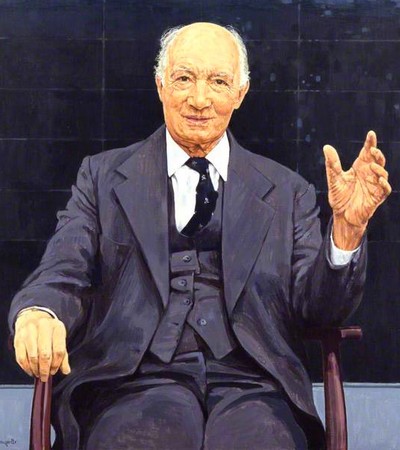
Lord Denning 1899-1999.
ramifications. Thus Lord Denning in Spartan Steel Alloys v Martin and Co. Ltd 1973 reasoned that if damages were awarded in the context of a power strike then the electricity company could go bankrupt. He struck out the case on the basis that the public interest lay in maintaining a solvent company to generate electricity supply.
Denning tended to fashion remedies in a novel and creative way to subvert conventional doctrine. For example, he fashioned the doctrine of promissory estoppel to overcome the strict contract law principles of offer and consideration. He asserted that if someone makes a promise they cannot go back on it. An Englishman’s word is his bond. A norm often lacking in Ireland.
V
A judge must have intellectual integrity, which is not to say a judge cannot have opinions. It is just necessary to be up front with preferences or prejudices. Which is not to say that a judge’s opinions are necessarily correct.
There are numerous academic commentaries regarding the methods a judge may use to interpret a text. I have indicated that literalism and rigidity is a dead-end, but there are other failings.
The method of strict historical interpretation holds a particular spell over Conservatives in the United States. This imports the anachronistic values of long dead individuals into the interpretation of contemporary law. This allowed Judge Scalia in America to uphold the legality of owning handguns simply because the 18th century forefathers of American constitutionalism ran rampant with muskets.
The most sinister nonsense of the law and economics movement in America – with two highly placed exponents in Easterbrook and Posner – has given rise to a cost-benefit analysis where wealth maximisation is the defining feature of every legal decision, at the expense of human rights.
Nonsense has infected our culture, and promotes the agenda of the Far Right and Neoliberalism. The costing of everything in hyper inflated times has destroyed much and continues to do so. The balance is wrong. Not the bank balance but the moral balance. The ledger of life.
Judges, even the greatest ones, are often ensnared by a viewpoint that does not stand up to intellectual scrutiny over time. Even the great Oliver Wendell Holmes became a proponent of Social Darwinism and eugenics, which led him to permit the compulsory sterilisation of a mentally defective person on the basis that three generations of imbeciles was enough.
I fear Social Darwinism is back in fashion, but at least in the multicultural environment of London, racial abuse and racism are dissipated. But even here there is growing apprehension. Draconian asylum laws and judgments reflect the slide. The deportation of the undesirable is often the deportation of those you disagree with. The greatest judges have always been immune to ideas of racial hierarchies
VI
Every judge should also have an inner voice second guessing them. He or she should hear someone whispering in their ear: ‘Perhaps not’, or, ‘Restrain yourself.’ He or she must remain as neutral as an umpire as in a cricket or a tennis match, evaluating the rules of the game and when matters are out of bounds.
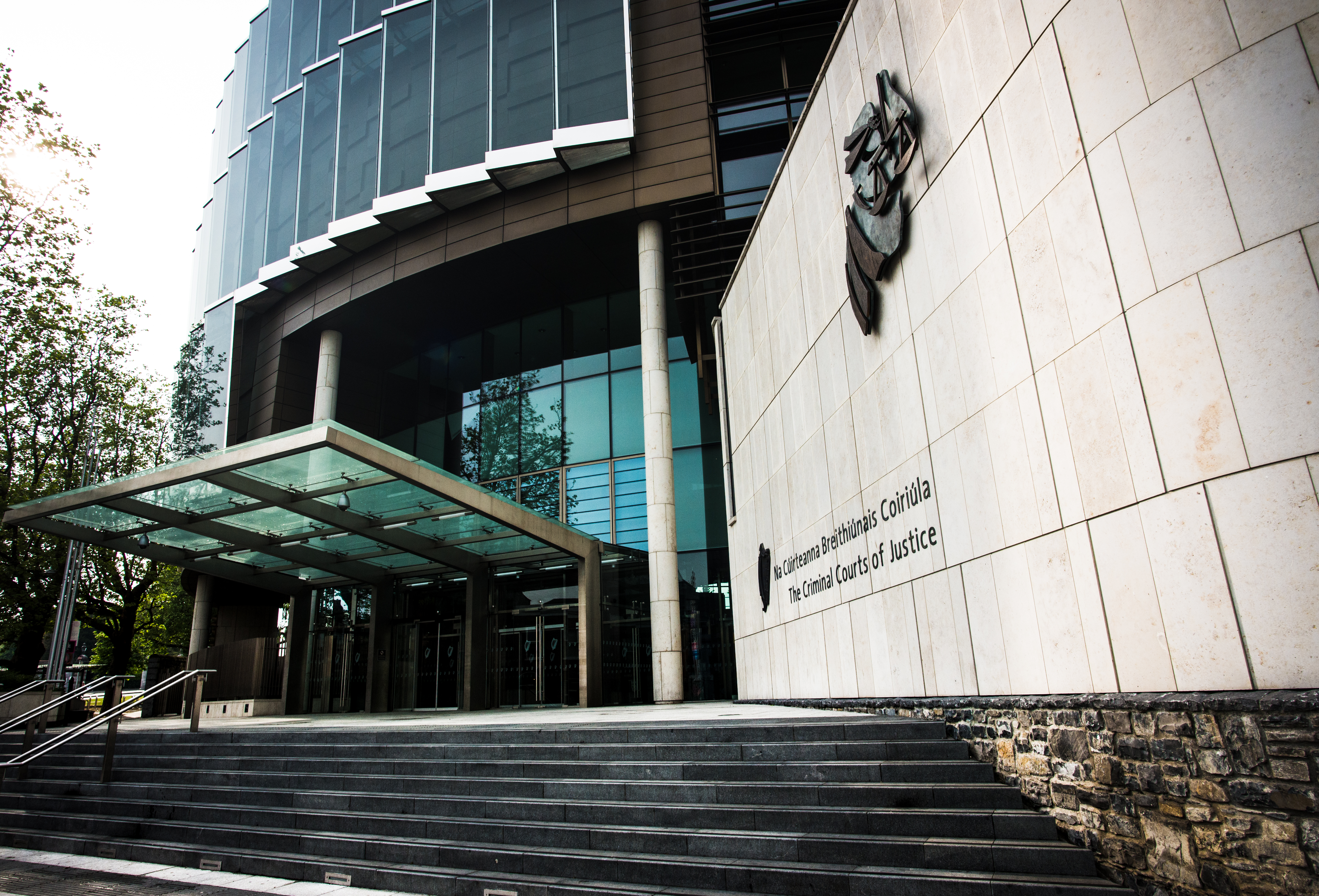 It is a grave responsibility to sit in judgment particularly in criminal justice matters, and apart from the obligation to sift and evaluate evidence carefully, an obligation always arises to lean over backwards to protect the innocent, or at least to accord them the presumption of innocence.
It is a grave responsibility to sit in judgment particularly in criminal justice matters, and apart from the obligation to sift and evaluate evidence carefully, an obligation always arises to lean over backwards to protect the innocent, or at least to accord them the presumption of innocence.
To impose any form of punishment on a fellow human being as a judge, without a critical filter and a defined sense of what you are doing and why you are doing it, is to forfeit one’s suitability.
For judges to collude with state authorities or bend and manipulate procedure and doctrine is a form of intellectual sadism. Many barristers try and avoid particular courts on that basis if they can.
A judge should also have a commitment to procedural fairness, equality-of-arms, human rights, independence and all the other aspects of the Rule of Law, which has little or nothing to do with judicial pay or pensions.
In Ireland those who prattle on about the Rule of Law are largely political barristers, the men of the Castle seeking high offices of state, and with much to protect and preserve; deliberately masking self-interest in ruling class chatter.
The appointment of avowedly party-political judges is a grave danger in any serious democracy. A judge should not have been involved or been a member of any political party prior to their appointment.
A judge should also give detailed reasons for any decision he makes, and that reasoning should display careful consideration. Failure to do so, or delay, is an abnegation of judicial responsibility.
As a Dublin-based barrister I endured too many written judgments failed to take into account the depth and sophistication of submissions; where the reasons adduced were a paper mask and compression; where the outcome was never in doubt and equality of arms a charade.
This leads to the question of when a hearing is fair or not. The most important point in this regard is to distinguish between procedural fairness and the obligation to hear both sides and substantive fairness.
Substantive fairness, which I have found lacking in Ireland, is always to do the right thing, and bugger the consequences. A judge should not be influenced in reaching a decision by how it will look in the media. A judge is not a fashionista or one of the beautiful people. A judge is not a pop star singing to politicians, though some have advanced that way.
A judge should fearlessly expose corruption and, above all else, not conceal it or protect it. That obligation is often difficult to follow. Giovanni Falcone was assassinated for confronting mafia corruption in Italy. There are different species of mafia, who may even operate among the ostensible guardians of the state.
Ireland’s greatest judge, for all his faults, of the last twenty years was Adrian Hardiman. The day after his death I met a judicial colleague of his who remarked: ‘Say what you want, he was a voice of independence in this country’; as if that is exceptional!
Absent are such independent voices in our present judiciary. The times-they-are-a-changing for the worse, winter is coming and difficult decisions are required, but by people ill-equipped for the task. History will judge our judges as not judging in all of the above senses.
For a great judge can become an historian, a cultural commissar, a public intellectual, and an arbitrator.
*******
A last important point on the qualities required in a judge is that he or she should not have an excessively authoritarian personality. A judge should thus be self-reflexive, and avoid pomposity at all costs. Peter Cooke’s caricature is invaluable for anyone aspiring to be one.
Above all, as the legendary French writer Camus observed, a judge should be a just man.

